Everyone has heard the saying “go with your gut instinct.” This could not be a truer saying! This is because everything starts in the gut, and it is the same for dogs just like humans. Have you ever had a gut feeling or butterflies in your stomach? These sensations emanating from your belly suggest that your brain and gut are connected. What’s more, recent studies show that your brain affects your gut health, and your gut may even affect your brain health. The communication system between your gut and brain is called the gut-brain axis. The gut is known as the second brain because so many of the neurotransmitters used by the brain and nervous system are created in the gut, it is estimated that up to 90% of the body’s serotonin is produced in the gut.
Dog behavioural problems like anxiety and aggression can have many causes and an out of balance gut microbiome may be one of them. There have been plenty of studies done on how the food we feed children affects their behaviour, this includes sugars and refined carbs that creates over-aroused cranky children. Yet when it comes to dogs the commercially processed food we feed them and the role it plays in the gut is one of the most overlooked topics related to behaviour problems in dogs. The gut microbiome has links to areas of the brain that affect mood behaviour, this also could potentially include responses to fear, anxiety, aggression, hyperactivity, obsessive-compulsive disorder, self-mutation, separation anxiety.
So why should this happen if we feed processed foods to our dogs? These high sugar processed foods lead to the release of bacterial toxins called lipopolysaccharides that normally hang out safely in your dog’s gut, but when they enter the blood because of the high fat processed foods they become toxic.
The lipopolysaccharides destroy the brain cells that make the neurotransmitters serotonin and dopamine, these are the so-called happiness hormones, and lack of these hormones can have a significant impact on your dog's behaviour. So, improving your dog’s gut health can ensure the production of neurotransmitters.
So, let us look at some of the ways you can support your dog’s gut to improve their health, behaviour problems, and skin allergies. Let us consider the number of chemicals that you are putting into your dog's body. Kibble dog biscuits tend to be high in carbs, low in protein and can be packed full of harmful chemicals. Dogs should be fed a biologically appropriate food diet. It is only in the last 100 years that we have started feeding kibble but what has not been taken into account is the fact their digestive system is still the same as it was thousands of years ago, dog’s stomachs are not designed to digest grain. Raw food diets are now becoming increasingly popular with dog owners and there are many health benefits that come from feeding dogs raw food including, superior joints bone health, strengthening the immune system, improved skin and softer shinier coat, superior dental health, reduced stool volume and odour, enhanced reproductive health, reduced body odour, reduced allergies, in some cases reduced hyperactivity.
Another way to help your dog’s gut microbiome is to do titre testing instead of over-vaccinating, which upsets the delicate balance of bacteria in the gut. Please note I am not saying do not vaccinate, I am saying you should get a titre test to check for immunity, if your dog has immunity then it does not need vaccinating. In dogs, you can titre test for parvo, distemper, and hepatitis.
Provide filtered water instead of chlorinated if you want to avoid toxicity in the gut, give your dog fresh, filtered or spring water, it will not have the added dangers of chlorine or fluoride in tap water. Omega 3 fatty acids are important to your dog's health in ways you never expect. Higher levels of omega 3 fatty acids Eicosapentaenoic acid (EPA) and Docosahexaenoic acid (DHA) play an important role in the healthy functioning of the brain, heart, joints, skin, eyes, immune system and DHA can also help with reducing anxiety in dogs. We have formulated our Holistic Omega 3 supplement for dogs. Probiotics play a key role in your dog’s gut microbiome because they are beneficial bacteria that colonize your dog’s gut. They help restore and maintain a healthy microbiome. Prebiotics are indigestible fibres that feed the probiotics to make them more effective, anything you can do to support the gut and its beneficial bacteria will support the immune system. Try to ease your dog's stress because chronic stress can affect your dog’s gut, it disrupts nutrient absorption and makes the gut lining more permeable which can cause a leaky gut. We have formulated our Holistic Fibre supplement for dogs. Many ways to help your dog relax include teaching them settling exercises because it is important your dog learns how to switch off and relax, sleep is very important, calming music, plugin pheromones, calming herbs such as valerian root and L- Tryptophan, Thunder shirt or wrap, desensitization techniques, counterconditioning, massage, Tellington T- Touch, and enrichments puzzles.
If you do have a dog with behavioural issues, then addressing gut health is also important for your dog's wellbeing.
Justine Shone
JP Holistic Nutrition





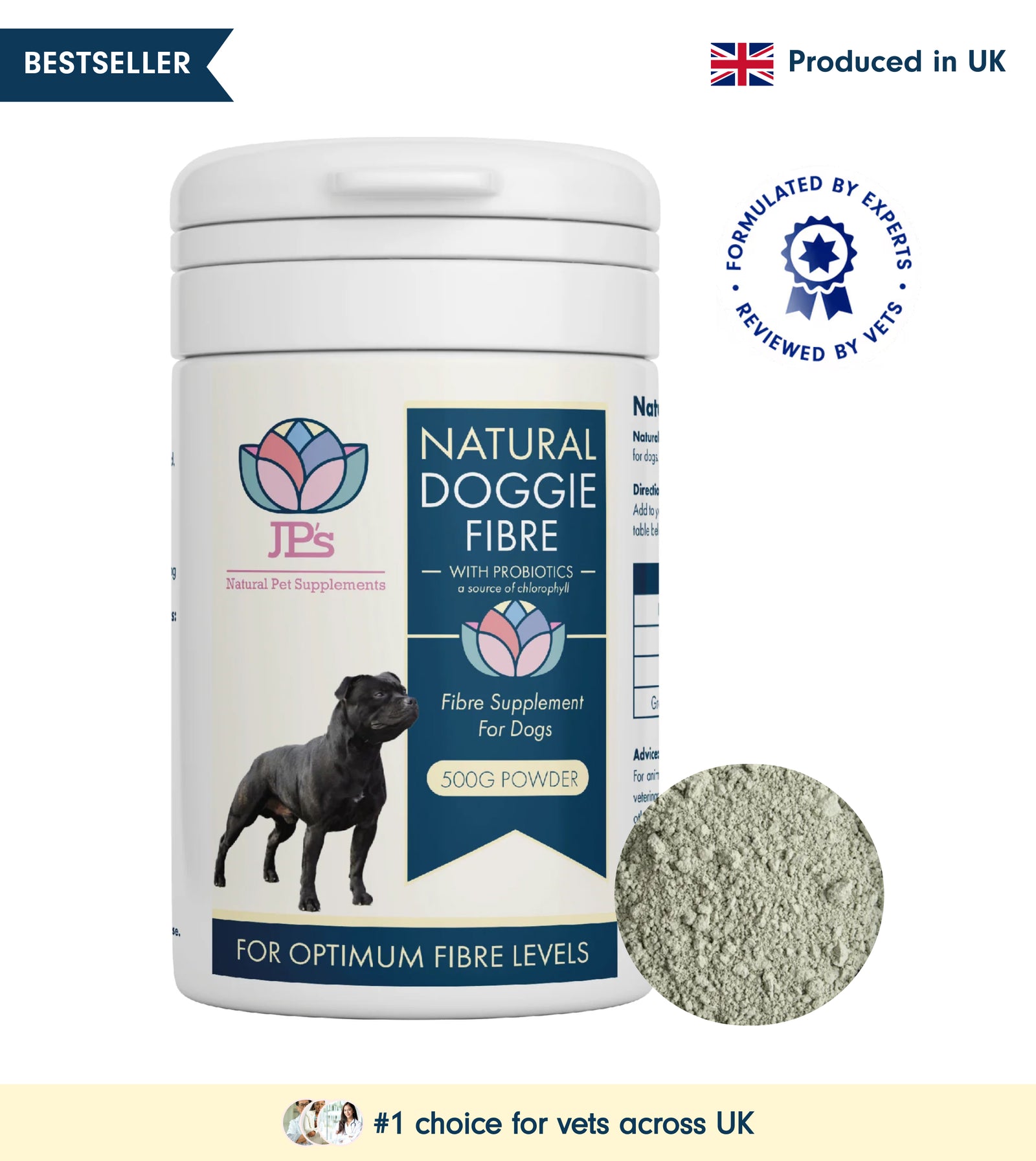
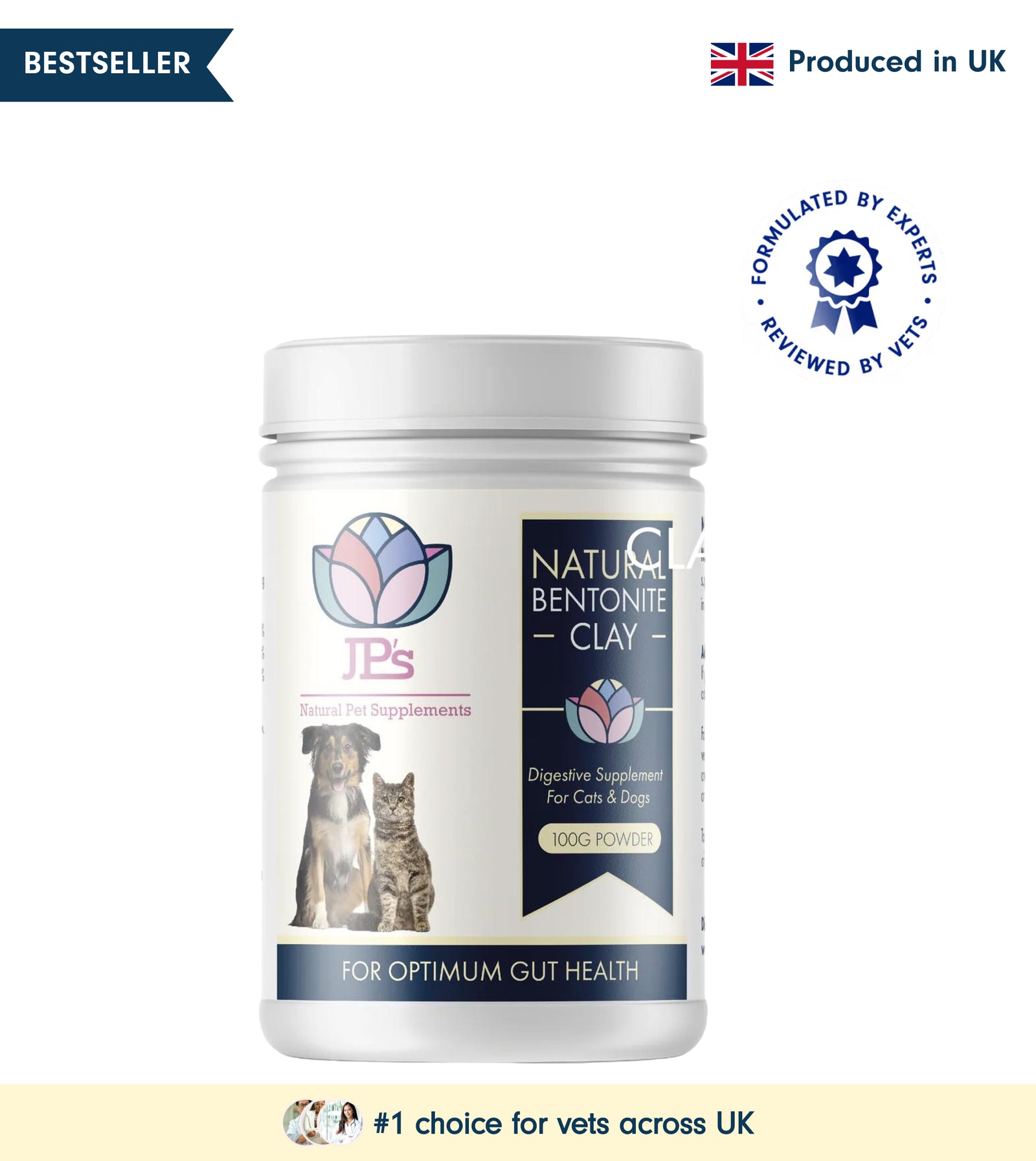
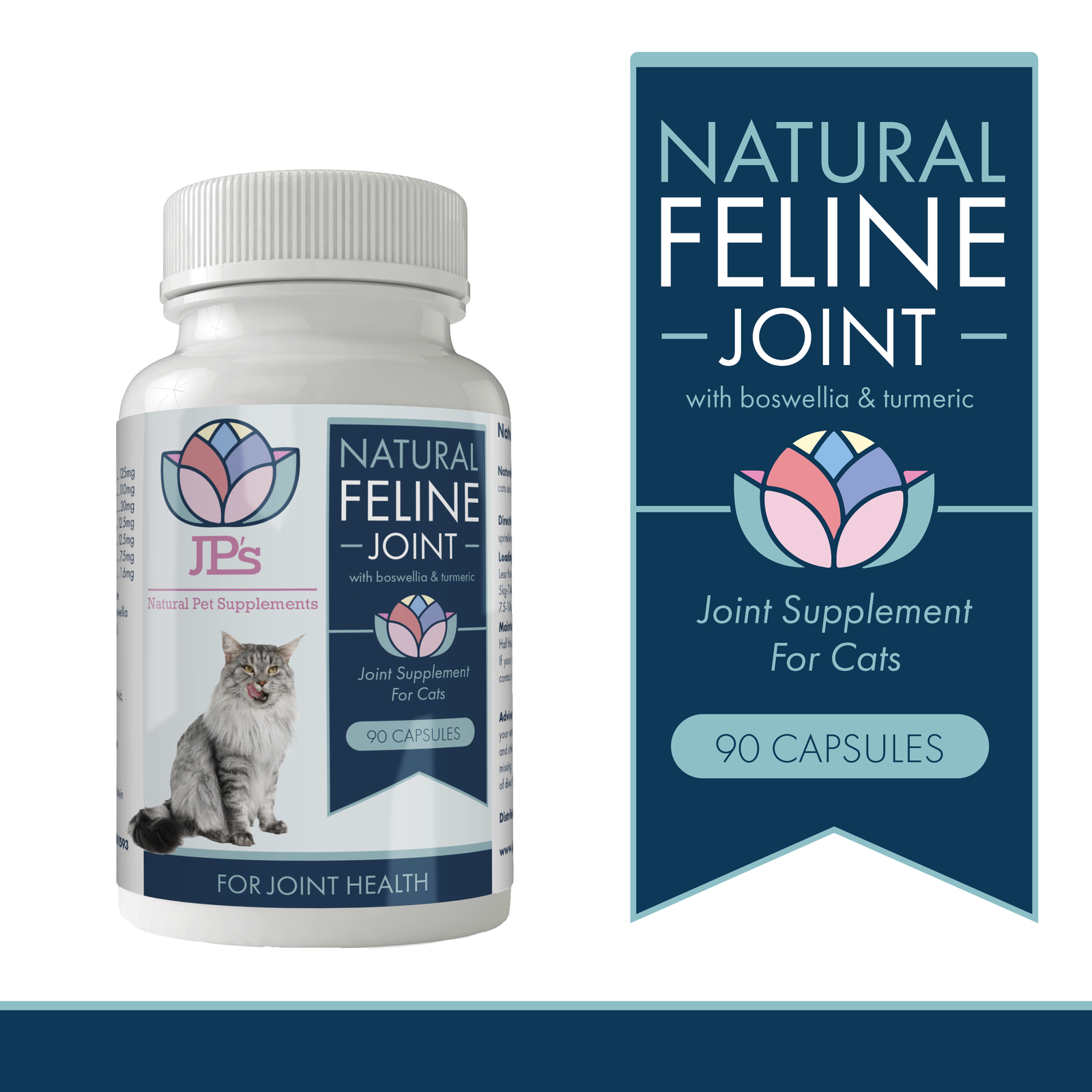
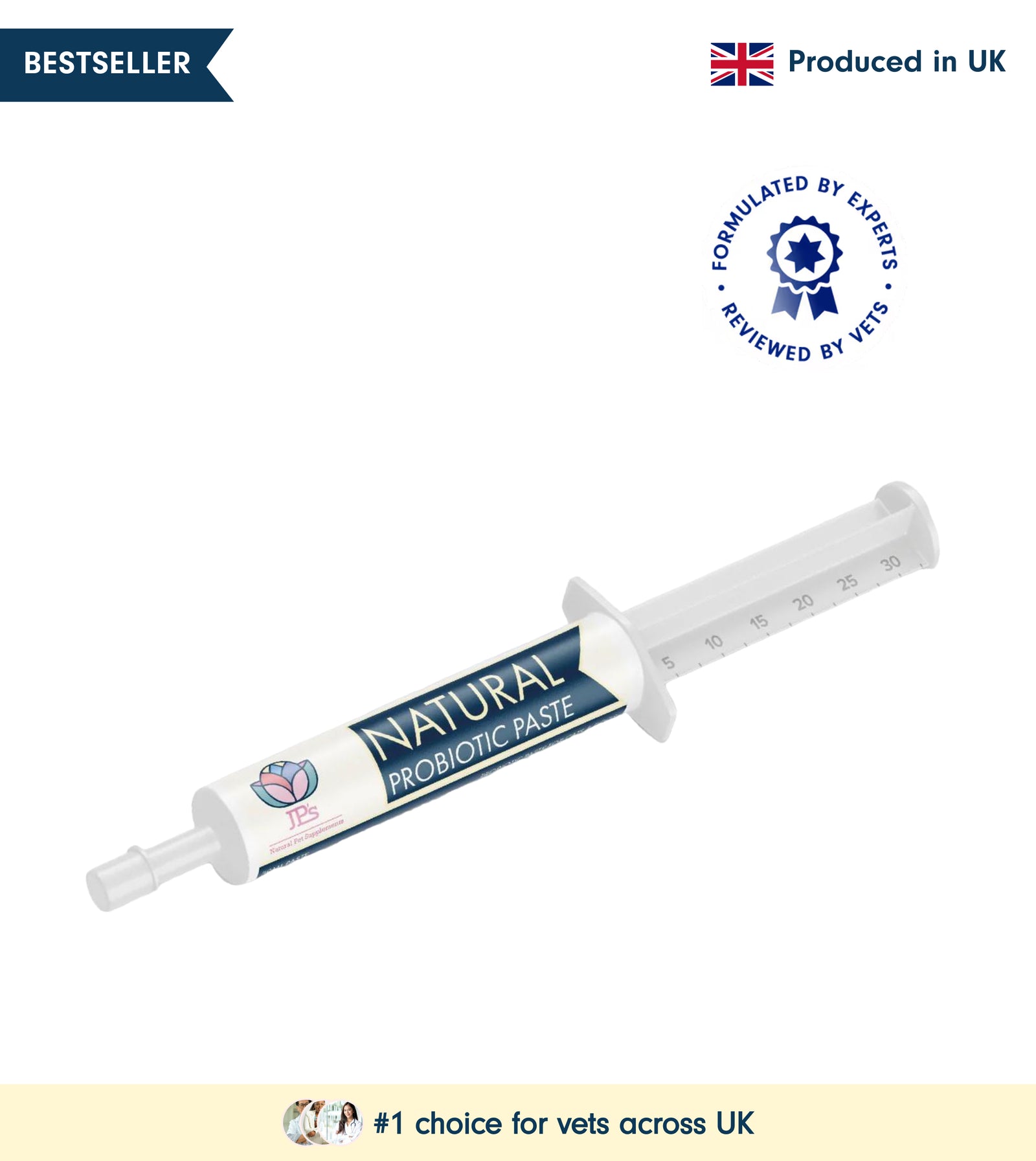
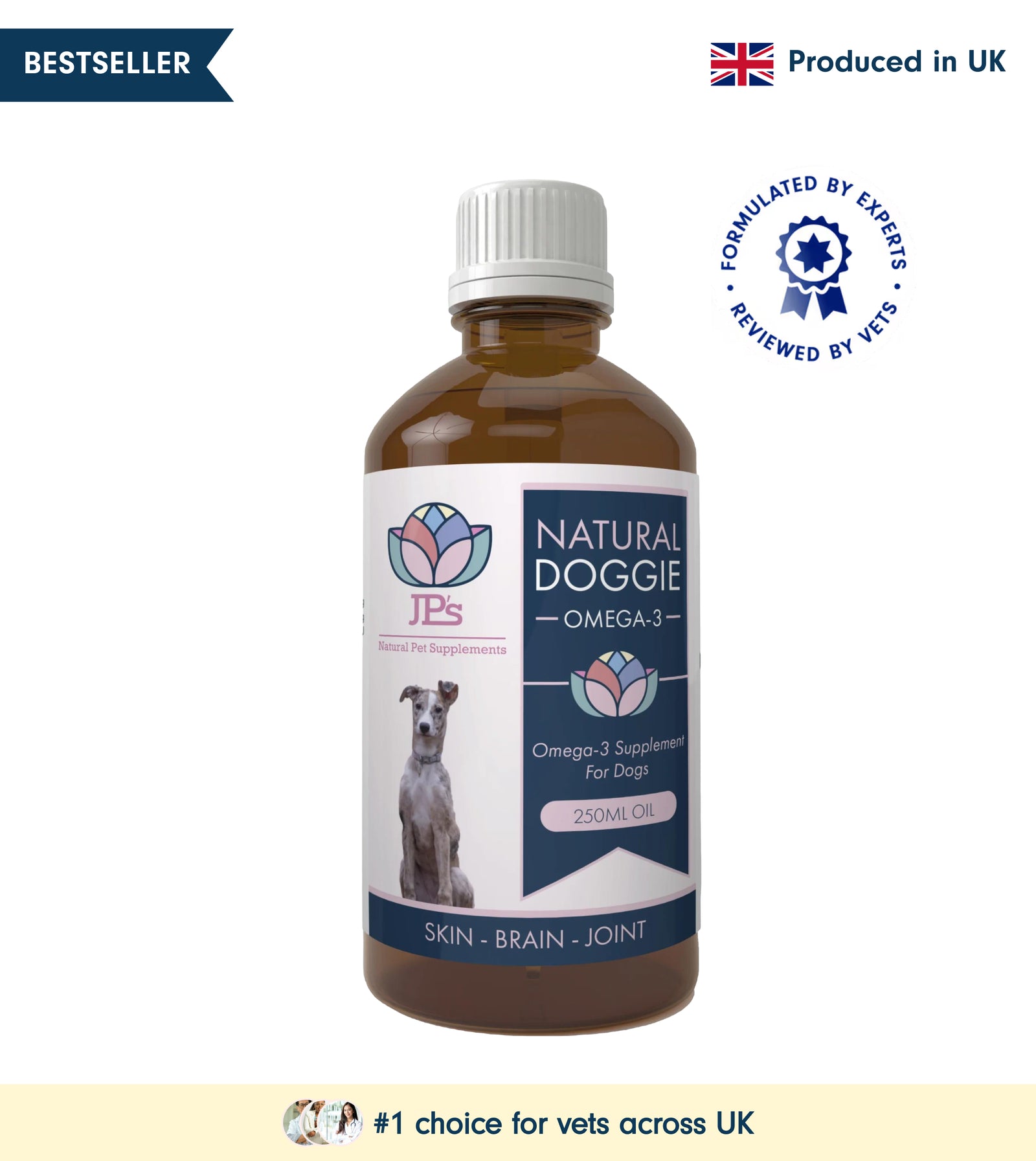
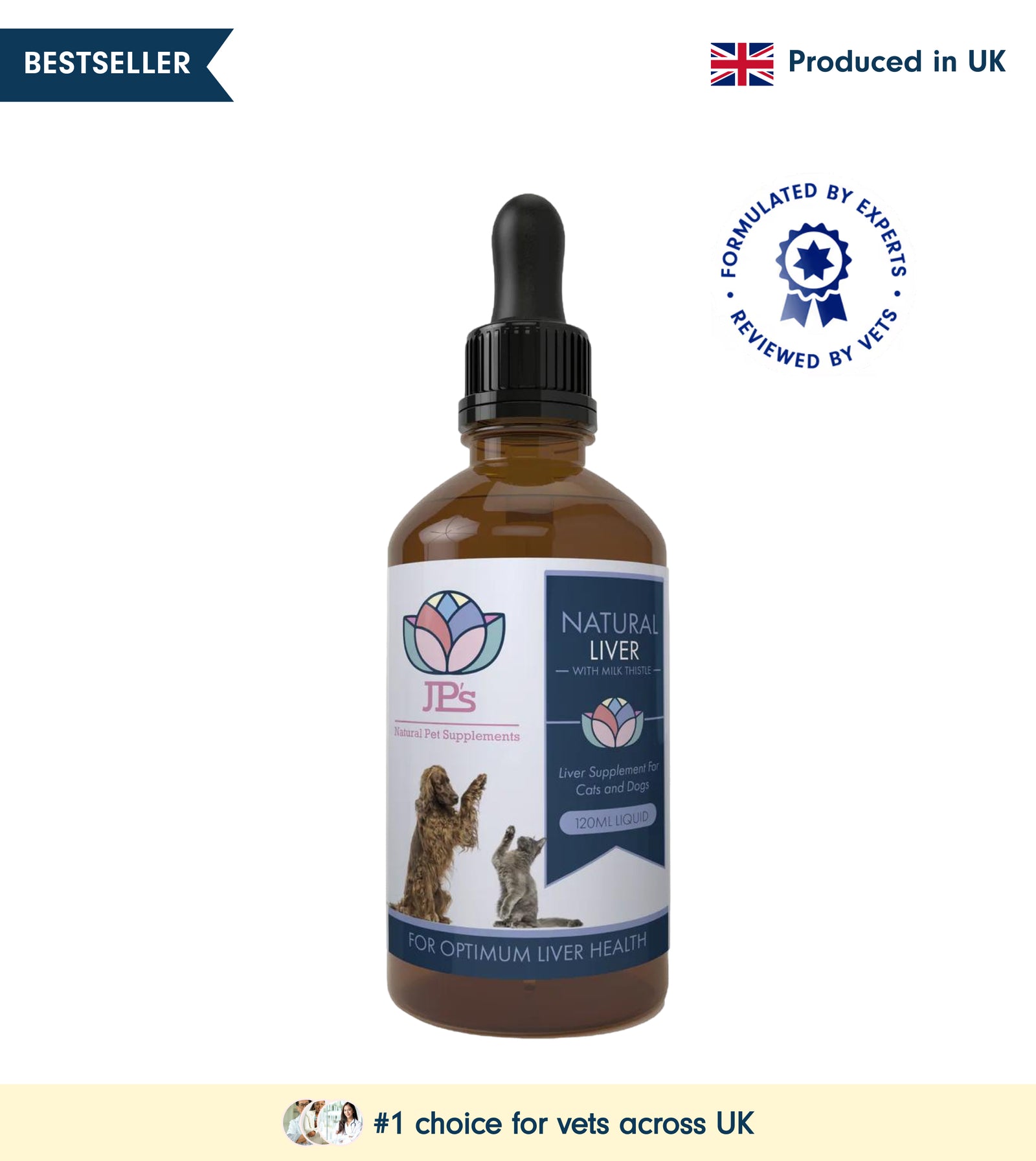
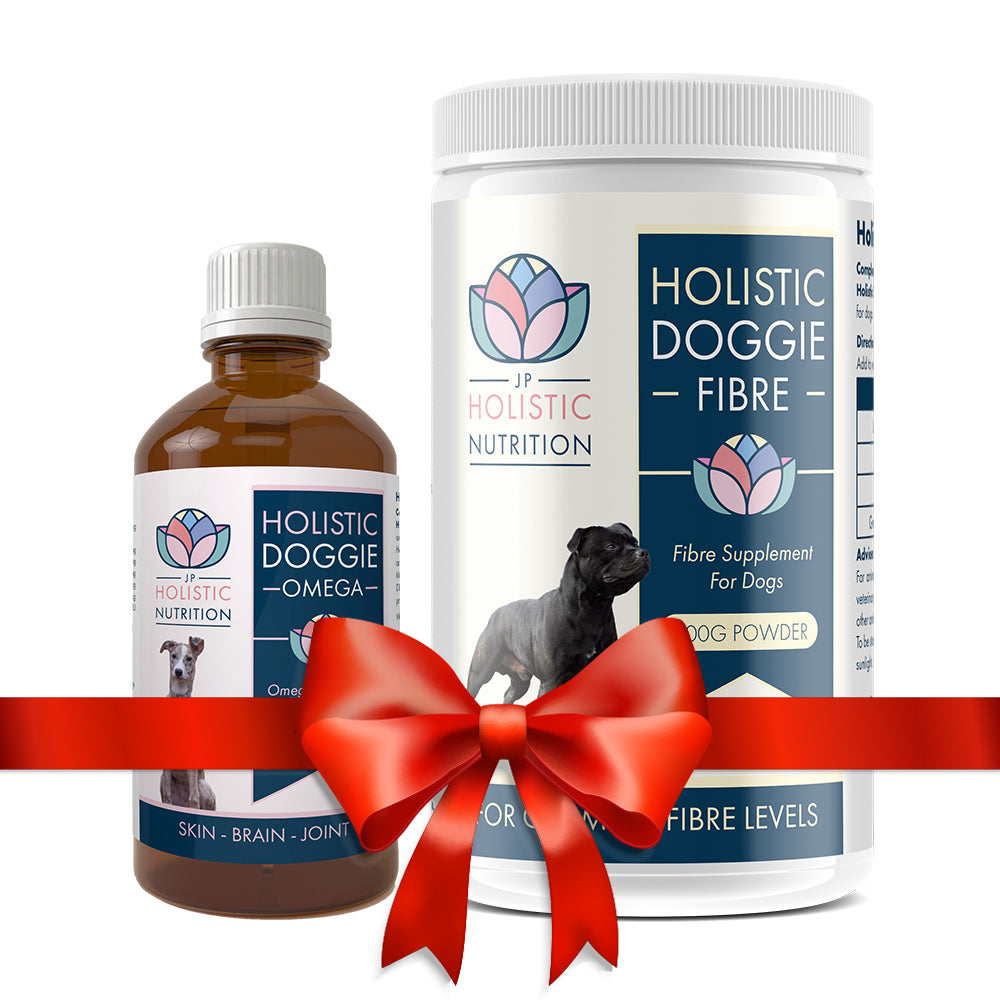
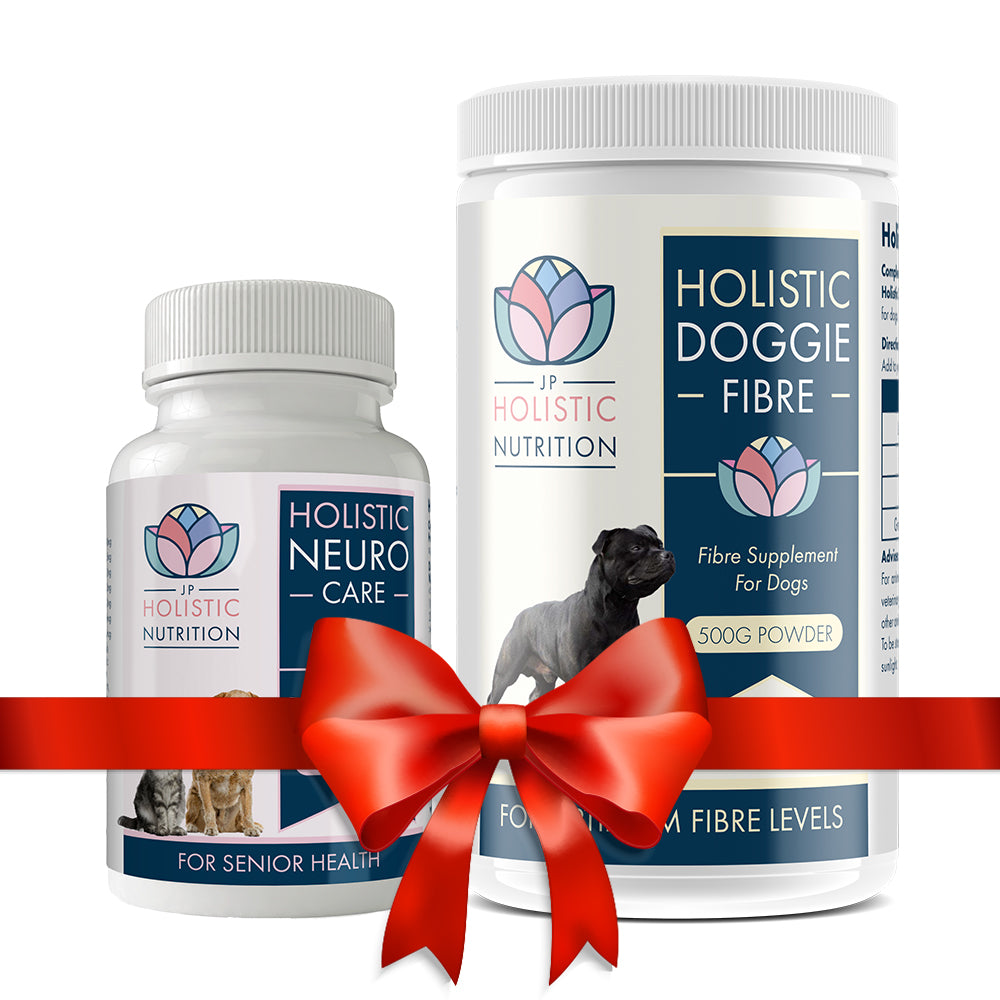
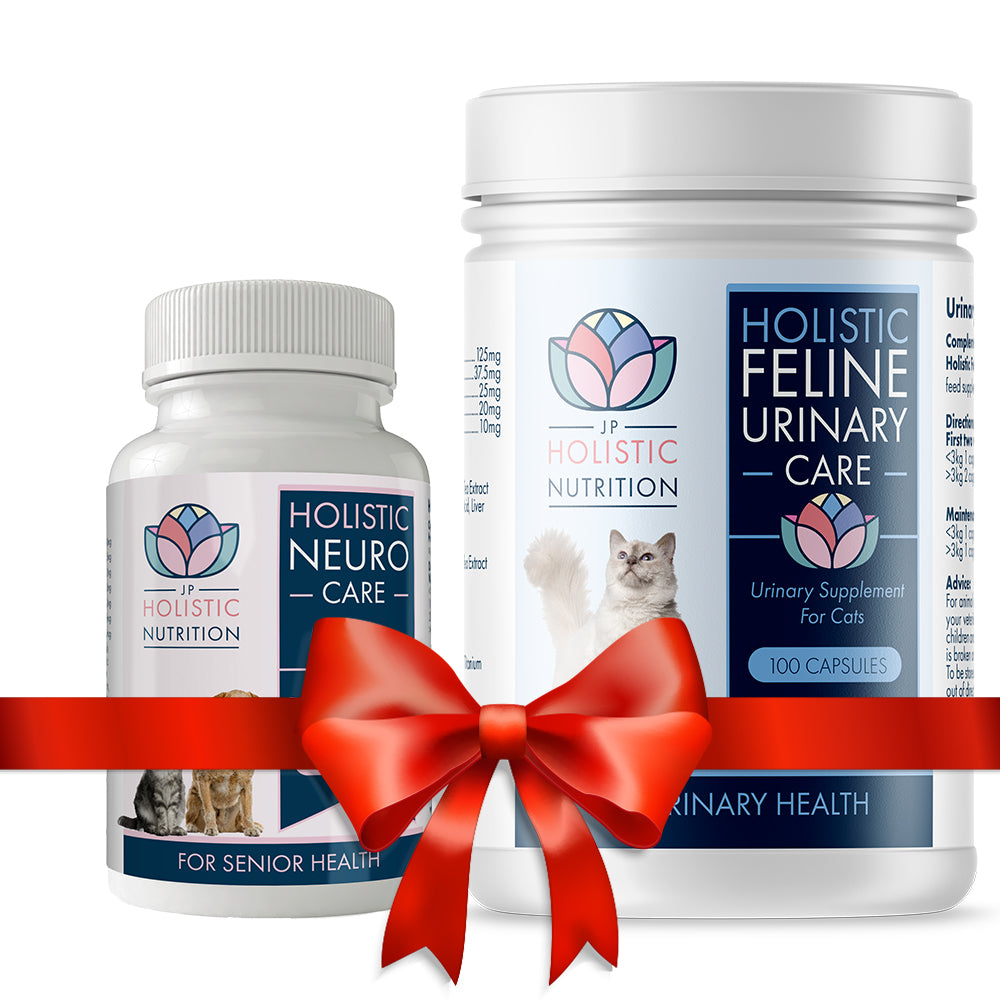
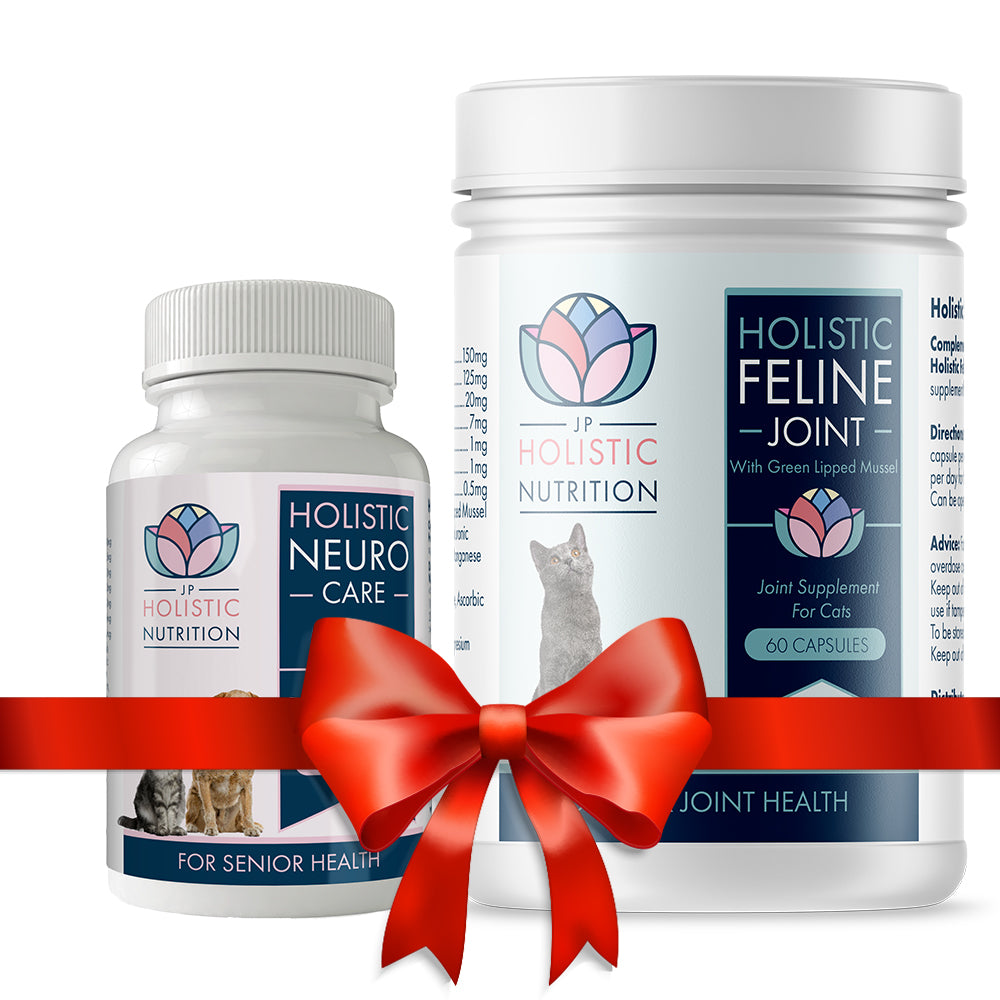


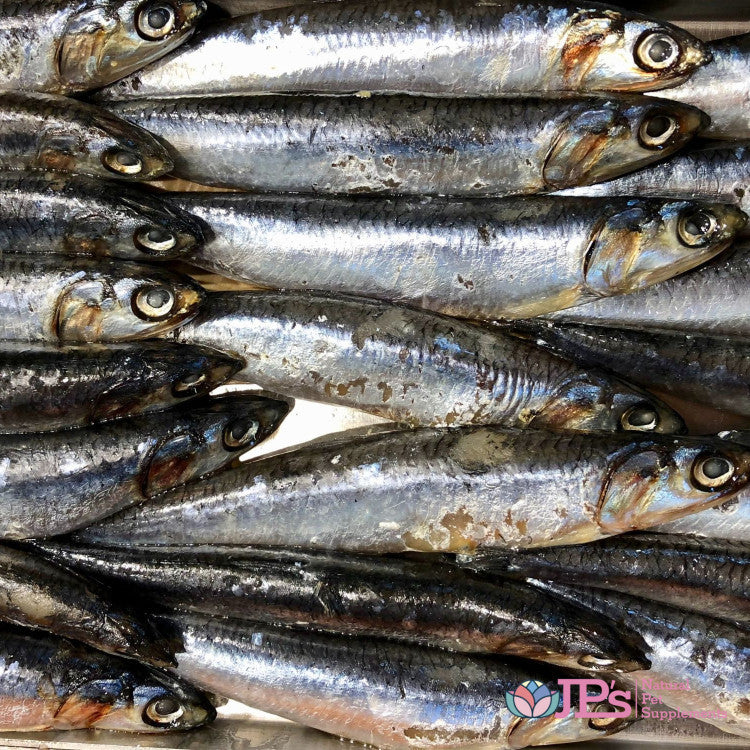
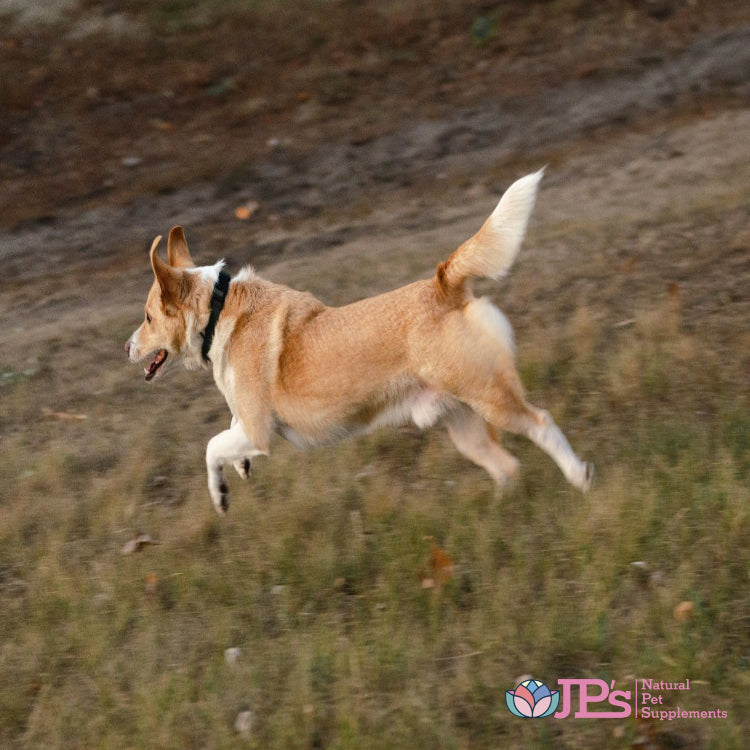
Leave a comment (all fields required)